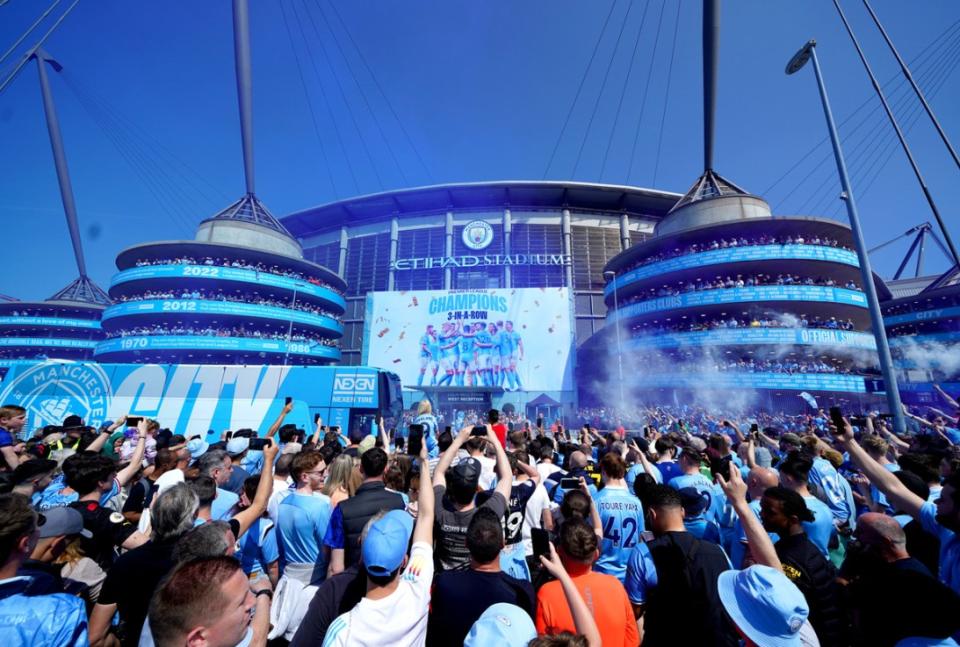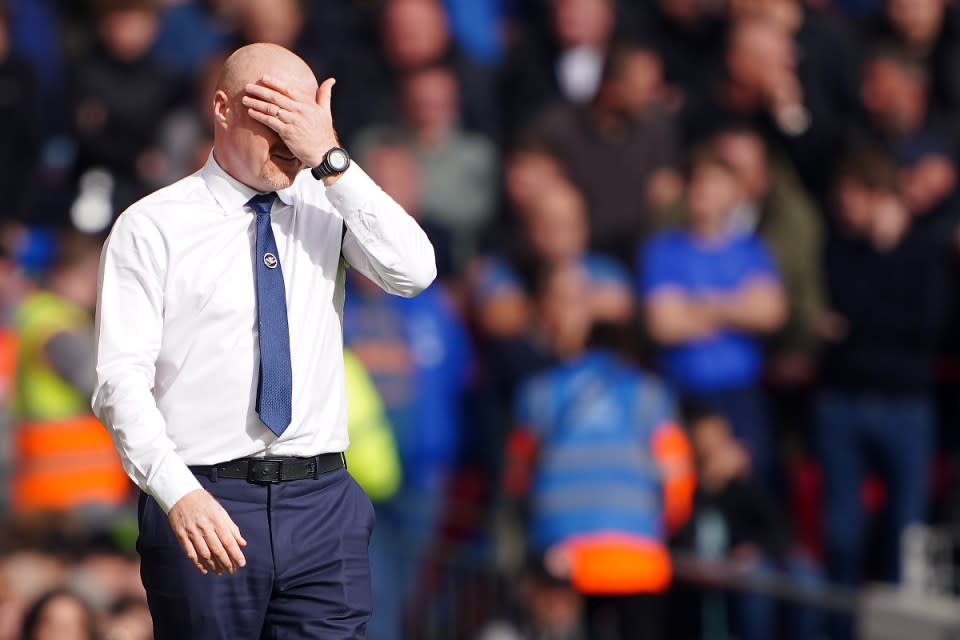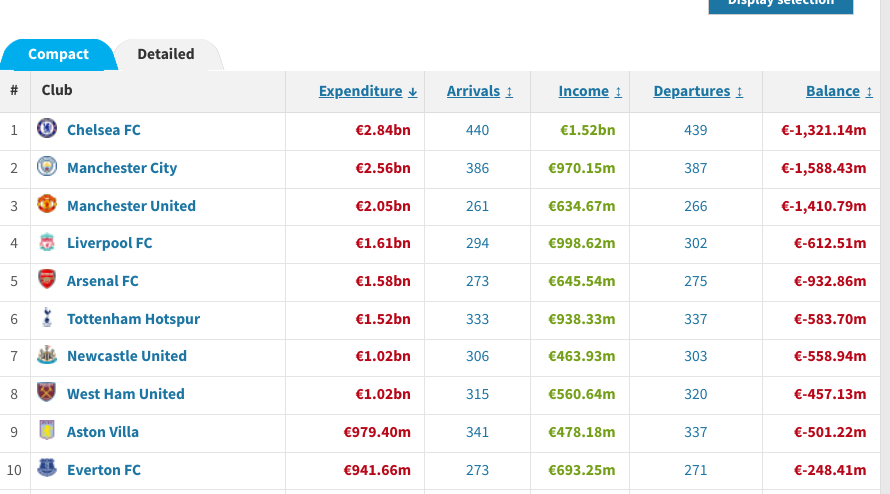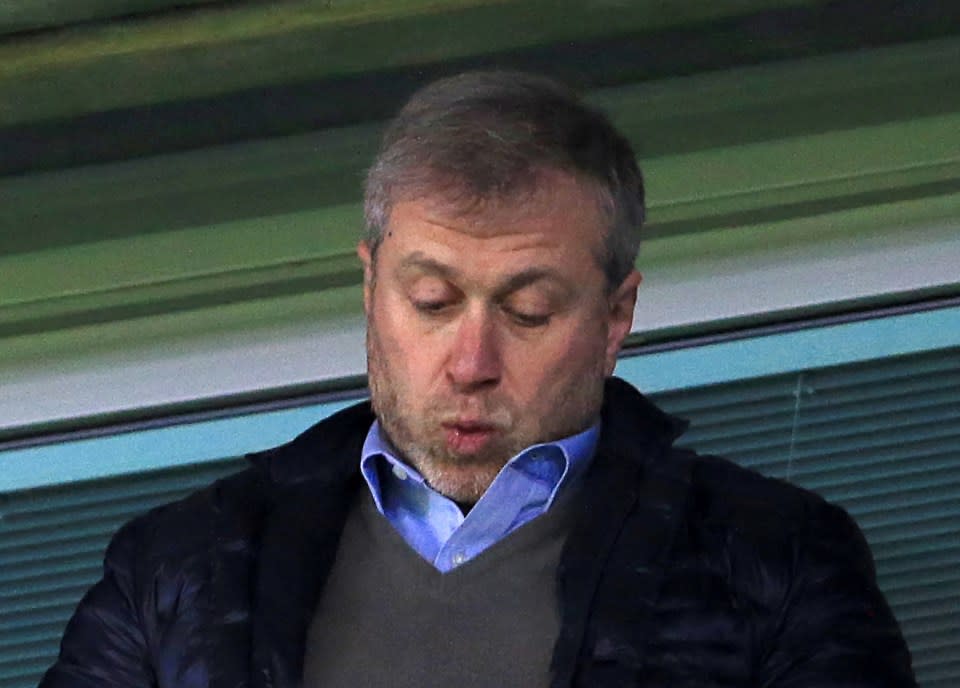What Everton being docked 10 points means for Premier League giants Manchester City and Chelsea

Everton Football Club are consistently one of the lowest-spending clubs in the Premier League, so their 10-point deduction for financial rule breaches has certainly turned some heads.
Most notably, football fans and analysts alike are asking why clubs which shell out billions of pounds, let alone hundreds of millions of pounds, haven’t been docked any points, while lowly Everton have been pegged back.
Is this a case of just picking off low-hanging fruit, the Premier League asserting its authority? Or is it genuinely a sign of much bigger things to come for alleged worse offenders?
What happened?
The struggling — but historic — Merseyside club, was penalised today after an independent commission found it breached Premier League financial rules.
The league referred Everton to the commission in March for an alleged breach of its profitability and sustainability rules in the period ending in the 2021-22 season — rules which allow clubs to lose a maximum of £105m over a three-year period or face sanctions.
The Premier League said: “The club admitted it was in breach of the PSR.. but the extent of the breach remained in dispute.”
Everton said they were “shocked and disappointed” by the immediate sanction imposed by the commission — and it would appeal.

Low-hanging fruit?
Of course, clubs all need to abide by the same rules, but there are much worse offenders who haven’t received such a harsh penalty.
Manchester City and Chelsea could be hit with a similar punishment, but the scale of the allegations against them appears to make their respective cases much harder to handle.
Only in March, it was announced that treble-winning serial champions of England, Manchester City, who have spent more than £2.5bn since its takeover in 2008, could evade a penalty for alleged financial crimes – for four years.
City were charged in February with more than 100 alleged rule breaches dating back to 2009, including falsely reporting income and the salaries of players and managers and failing to cooperate with the Premier League’s four-year investigation.
Yet, sports law experts believe that the complexity of the case, the seriousness of the charges and the legal capabilities of both parties mean that it is likely to drag on until 2025 at the earliest — and could last until 2027.
At the time, leading barrister Nick De Marco KC explained that “given the parties involved, given there are 115 charges, given that some of the charges are alleging things akin to fraud and dishonesty, given the lawyers and legal teams involved, I do not believe that this is going to be wrapped up in anything less than two to four years’ time”.
“I think that’s impossible, and I don’t think anyone reasonably is arguing otherwise,” De Marco added.
In other words, the scale of the allegations against Manchester City make it harder to impose an immediate and conclusive penalty, like with Everton.
Likewise, Chelsea, which has spent even more than City in that time, has not had points docked or faced serious financial penalties, despite being more than £1.3bn in the red.

Earlier this week, Chelsea was under the microscope because of payments made under its now-sanctioned former owner, Roman Abramovich.
And this latest decision with Everton will make them especially jittery given their splurge in spending since being taken over by Todd Boehly, putting a plethora of young players on long contracts.
The West London club was subject to a probe by The Guardian and the Bureau of Investigative Journalism, which claimed Abramovich used offshore firms to make transactions with football agents, which benefited the club.
Chelsea were also fined more than £8.5m earlier in the year, for submitting incomplete accounts, but there’s no points deduction – and given the sums of money flying about at Stamford Bridge, that’s a mere drop in the ocean.
Nii Anteson, a partner and solicitor advocate in the sports team at the law firm Sheridans, said: “Both the Chelsea and Everton cases involve the submission of financial information to the Premier League. The distinction to be drawn here, in my mind, is that the Chelsea case involves the alleged withholding or concealment of information on payments made on behalf of the club. Whereas the Everton case concerns the characterisation of certain amounts in financial information submitted to the Premier League.”

“In both cases, aside from the specific obligation to provide accurate and complete information, there is the general obligation to act in good faith in all dealings with League. Interestingly, a representative of Everton who gave evidence in its proceedings is quoted in the judgment as saying broadly that, in the same way, that a tax accountant’s job was to reduce a client’s tax exposure, an element of his job was to…interpret [Profit and Sustainability Rules] rules to the benefit of [Everton].”
He added that “the Commission was quite clear that the duty of good faith clubs owe to the league trumps that and “Everton did not consciously intend to circumvent the Rules but there is no doubt that it failed to discharge the duty of utmost good faith imposed [by the rules]”.
So you might be forgiven for being cynical, and thinking that Everton are low-hanging fruit for the Premier League to pick off, while much worse alleged offenders aren’t going to face the music for ages.
This is especially poignant, given Everton’s position in the league now, back in the relegation zone, but among stragglers Luton Town, Sheffield United and Burnley, with only 12 out of 38 games played.
Everton can — and should — quite easily get out of this situation and avoid relegation.
So the Premier League authorities look strong — and the club gets a non-legal blow, as a message to others.
Simon Leaf, partner and head of sport at Mishcon de Reya, said the points deduction against Everton will have a seismic impact.
The top lawyer, as well as co-author of the chapter on financial regulation in Football in the leading football law textbook Football and the Law, said: “This is a landmark moment in the history of the Premier League and one of its most famous clubs, and will cause shockwaves – particularly in the boardrooms of Chelsea and Manchester City.
“It’s the first time that the Premier League has imposed a points deduction for breach of its P&S Rules/FFP in its history.”
He said the rules were implemented in 2013 to stop financial breaches over a three-year period, but “crucially, and this is where the controversy lies with Everton, there are a number of exceptions that have been introduced that enable clubs to incur greater losses — including infrastructure investments, which are certainly relevant to Everton given their new stadium that is under construction. The other controversial element is the pandemic”.
Leaf added: “The Premier League released somewhat ambiguous exceptions to the P&S/FFP Rules at the start of the pandemic in recognition of the additional losses that were likely to arise — including the loss of match day income and the potential loss of transfer fees from the collapse in the transfer market.”
“It is the wording of these exceptions, in particular, that no doubt the Premier League and Everton’s lawyers have clashed over; with the latter arguing that greater leeway should have been afforded to the club.”
“The other interesting development here has been the attempt by a collection of clubs led by Leeds United but also including Nottingham Forest, Southampton, Leicester and Burnley who tried to intervene in the case by being added as interested parties, under a relatively untested regulation within the Premier League’s Rules”, Leaf added.
“While this was given short shrift by a separate Commission, it, alongside today’s main ruling, paves the way for those clubs to potentially seek to bring a separate claim against Everton for losses that those clubs had incurred as a result of Everton’s breach.”
He added it is “almost certainly not the end of the story”.
“We understand Everton has indicated that it will appeal the sanction imposed and also the finding that it failed to act with the utmost good faith,” the lawyer said.
“However, the club will need to act fast. Perhaps, most surprisingly given the potential impact of the sanction, under the new P&S/FFP Rules Everton only have seven days to submit its case for the appeal, which, given the amount of work that is involved, is not much time at all.”
Meanwhile, Yasin Patel, barrister at Church Court Chambers said “it was inevitable that Everton would appeal the points deduction in light of the gravity of the punishment, the potential consequences for the future and the mitigating circumstances for the club.”
“In the long-term, there is the potential legal action from the clubs who were relegated last year, in particular Leicester City, who finished 18th and would not have been relegated if the points deduction had been implemented last year.”
“The club could not have foreseen circumstances such as the Covid virus and its effect upon football clubs’ incomes, the Ukraine war and the sanctions upon Alisher Usmanov resulting in loss of commercial income of approximately £200 million, the new stadium costs and the inflated prices of materials and labour, again due to the Ukraine war.”
“With the support of the Mayor of Liverpool and the various mitigating factors, the club will look to utilise its legal arguments, political support and the exceptional circumstances to overcome the independent commission’s ruling.”

 Yahoo Finance
Yahoo Finance 